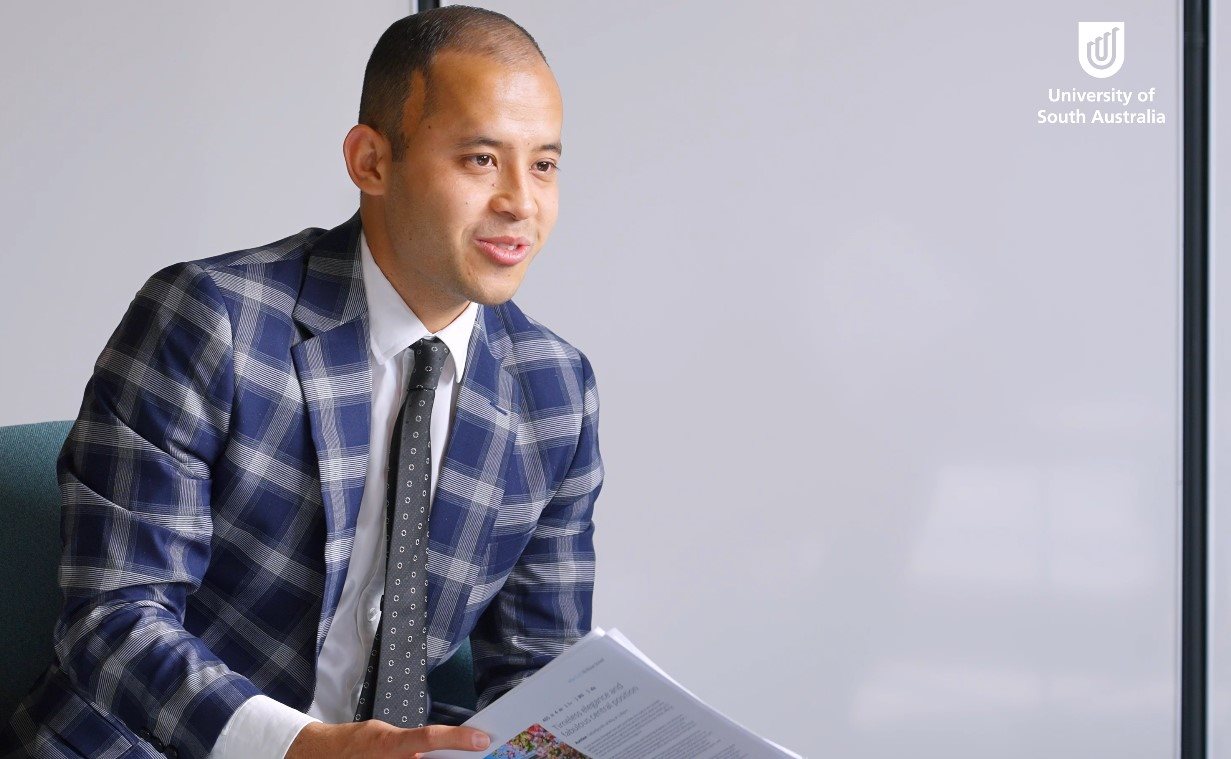Bachelor of Laws (Honours) (Graduate Entry)
Degree Level Undergraduate
Year 2025
You're considered an International student if you are:
Degree Level Undergraduate
Year 2025
Program Code
DHLA
Prerequisites
None
Assumed Knowledge
None
Fees
AUD$ 38,300 per annum (per 1.0 EFTSL) for students enrolled in 2025
International Admission by Country
See full entry requirements
CRICOS Code
102763H
The admission criteria have been grouped to assist you to easily find the information most relevant to your circumstances. However, you may fit into more than one and the university will consider applicants against each of the relevant criteria.
Certain conditions apply. For more information refer to Appendix 4 of the University's Selection and Entry policy.
Applicants are required to have a completed Bachelor degree with a competitive GPA.
Those who already hold a recognised Bachelor degree can receive 18 units of credit and complete this qualification in three and a half years full-time (or part-time equivalent).
The Graduate Diploma in Legal Practice option is not available to international students studying in Australia on a student visa.
1ComparED (QILT) Student Experience Survey 2021-22, Law and Paralegal Studies – Overall Quality of Educational Experience Indicator (Undergraduate). Public universities. 22018 Excellence in Research for Australia (ERA).

Prepare for a dynamic career in law with our professional law honours degree which you can complete in 3.5 years full-time (or part-time equivalent) using credit from your previous studies.
As a UniSA Law student, you'll gain valuable skills from day one that you can use to resolve complex legal problems, including in reasoning, reporting, analysis, negotiation, communication and advocacy.
You will be involved in mock-trials in our Moot Court, gaining practical skills and learning what it’s like to act as an advocate and present before a judge. You will also be guided to reach your potential and become career ready, with opportunities for international study tours as well as local and national internships and clerkships.
During your degree, you can undertake a Community Justice Project, practice advocacy and negotiation, or gain industry experience through participation in our Legal Advice Clinic or a professional placement.
At UniSA we are dedicated to ensuring that our students graduate with a commitment to seeking fair and just outcomes, and with the confidence and capabilities that employers value. These real-world opportunities will ensure you are well equipped with both the practical skills and academic knowledge to successfully practice law upon graduating.
This degree is designed for those who hold a recognised bachelor's degree (with a competitive GPA). If you do not hold a prior qualification, find out more about our Bachelor of Laws (Honours).

During this degree you will study courses that teach you the fundamental legal principles and concepts that underpin the Australian legal system.
Courses such as torts, contracts, criminal law and constitutional law will give you a good understanding of the basic legal principles.
Our Law program also features courses that build your leadership skills, intercultural communication, project management and capacity for community engagement. Through your choice of electives you can expand your knowledge in an area of professional interest such as health law, sports law, family law or human rights law.
You will have the opportunity to have practical learning experiences including mooting, negotiation, and witness examination. You will also engage in a Community Justice Project, ensuring you’ll be prepared for legal practice upon graduation.
You can gain an extra qualification and broaden your career prospects by completing a Diploma in Languages.

With our law research recognised as world-class1, you will be taught by experts. Learn from those at the forefront of the legal profession with our teaching staff committed to developing not only your knowledge, but also your confidence.
Our innovative combination of smaller class sizes, practice-based learning and courtroom-like facilities deliver a learning experience that takes you beyond the theory of law.
You may also choose to gain valuable experience in our Legal Advice Clinic, solving the legal problems of clients under the guidance of a managing solicitor.
This degree is designed for those who previously hold a recognised bachelor's degree (with a competitive GPA). If you do not hold a prior qualification, find out more about our Bachelor of Laws (Honours).
We offer more than 100 degree combinations with law so you can specialise in two fields and expand your career prospects. In addition to our law double degrees, you could pair the Bachelor of Laws (Honours) with any other UniSA discipline and tailor your qualification to your career interests. For information about the application process, submit an enquiry.
Our study options and extra-curricular opportunities are designed to suit your preferred way of learning, lifestyle and career interests. You can benefit from two study intakes, Summer and Winter School intensive courses, mentoring and networking opportunities, as well as accelerated learning pathways.
You can also join our active student community with the UniSA Law Students Association (USALSA) – an independent body that provides educational and vocational support, and hosts a variety of social and networking events.
12018 Excellence in Research for Australia (ERA).
At UniSA you'll learn practical, industry-ready skills to future-proof your career. Hear from our graduates Murtaza and Aria and find out where a UniSA law degree could take you.

Our quality teaching focuses on developing your practical skills and identifying opportunities for you to connect with industry beyond the classroom, which will ensure you graduate career-ready.
You will hold a desired skillset for a diverse range of careers including:
How to apply for international students will give you helpful information about the application process at the University of South Australia. When you are ready, apply through our International Application System. If you would like to talk to someone near you about studying at the University of South Australia, we have agents all over the world who can assist you. Find an Education Agent in your country.
Every year, over 2,500 UniSA students are supported in their studies through scholarships and grants worth millions of dollars. Check out the scholarships below. One of them may be perfect for you. Visit our scholarships page for more.
Recipients can get a 50% reduction on tuition fees for up to four years of full-time study for selected degrees.
Recipients can get a 15% reduction on tuition fees for the duration of their chosen degree.
As a UniSA student, you will have unique access to work placement opportunities, overseas study tours and exchanges, networking events, internships, guest speakers and more.
Our campuses are equipped with state-of-the-art facilities including modern lecture theatres, libraries, workshops and laboratories, as well as spaces that simulate real work environments. These are all supported by the latest technologies and a 24/7 online learning platform. We have health services on campus, gymnasiums, technology zones and great student lounges. You will also gain access to a range of community clinics, which provide professional and cost effective services in areas of health, business, law and psychology. There are campus sport activities to keep you active, and if you are keen to explore the social side of university life, there are movies, cooking demonstrations, parties and lots more.
Adelaide also has a variety of accommodation options to suit different requirements and budgets. Options include dedicated student accommodation and private rentals. See our long-term accommodation pages, or explore our student accommodation by Scape on Bank Street in Adelaide’s lively cultural precinct, an ideal location for students. It is within easy reach of UniSA’s city and metropolitan campuses, Rundle Mall shopping, the Central Market, Chinatown, and the West End’s vibrant nightlife. It is also across the road from the Adelaide train station, and on bus and tram routes.
UniSA law students can join our active UniSA Law Students Association (USALSA) and benefit from a like-minded community while participating in a variety of social and networking events.
The creation of law through judgments handed down by judges over centuries makes law one of the most significant and profound intellectual achievements of our society. Law speaks to the human condition. It cements core values – integrity, loyalty, perseverance and compassion. And it has never been needed as much it is needed today. I believe that this philosophy, which is integral to the law program at UniSA, equips you with the skills, passion and commitment to excel in your future careers – the legal profession, government, business, community enterprise and postgraduate study.

There are a number of ways to apply to study UniSA's undergraduate and postgraduate coursework degrees.
You can access our online International Application System through our How to Apply page. The International Application System is an easy and secure online application and acceptance process. You will have visibility of your application through the secure online portal with the ability to download offer documents, submit your acceptance and make a payment.
Alternatively you can submit an application through one of the University's registered Education Agents.
If you are completing an Australian year 12 qualification in Australia or overseas, or the International Baccalaureate (IB) Diploma Programme in Australia, you must apply through SATAC http://www.satac.edu.au/.
If you are applying for the UniSA Study Abroad or Study Abroad Plus program, you can submit your application online here.
Postgraduate study by research
For information on applying to do postgraduate study by research, including Masters by Research, PhDs or Doctorates, please visit http://unisa.edu.au/resdegrees.
There is no closing date for submitting your application however the admissions process takes between one and three weeks from the date that we receive your application and all required supporting documentation.
If you are completing an Australian year 12 qualification in Australia or overseas, or the International Baccalaureate (IB) Diploma Programme in Australia, you must apply through SATAC. Key dates for applications can be found here.
You may be eligible to receive credit or advanced standing for your chosen UniSA degree based on your previous studies, if they are in a related area at an equivalent or higher level. Receiving credit will reduce the number of courses you undertake within the degree, and may also reduce the overall duration of your degree.
The amount of credit you may be eligible to receive is assessed on a case-by-case basis by the Admissions team.
The best way to determine your eligibility to receive credit or advanced standing is to apply using our International Application System which can be found on our How to Apply page. You will need to supply detailed syllabus documents with your application.
UniSA welcomes the opportunity to speak with you regarding your study options. Our staff are able to talk to you about degree information, career outcomes and pathways, entry requirements, applications, and student life, so that you are able to make the best study decision for your future.
Click here to book a 1:1 appointment with one of our enquiries team.
We also have many events throughout the year in Australia and overseas where you can speak with UniSA representatives about your area of interest. View our calendar of events in your home country by selecting the 'International' filter.